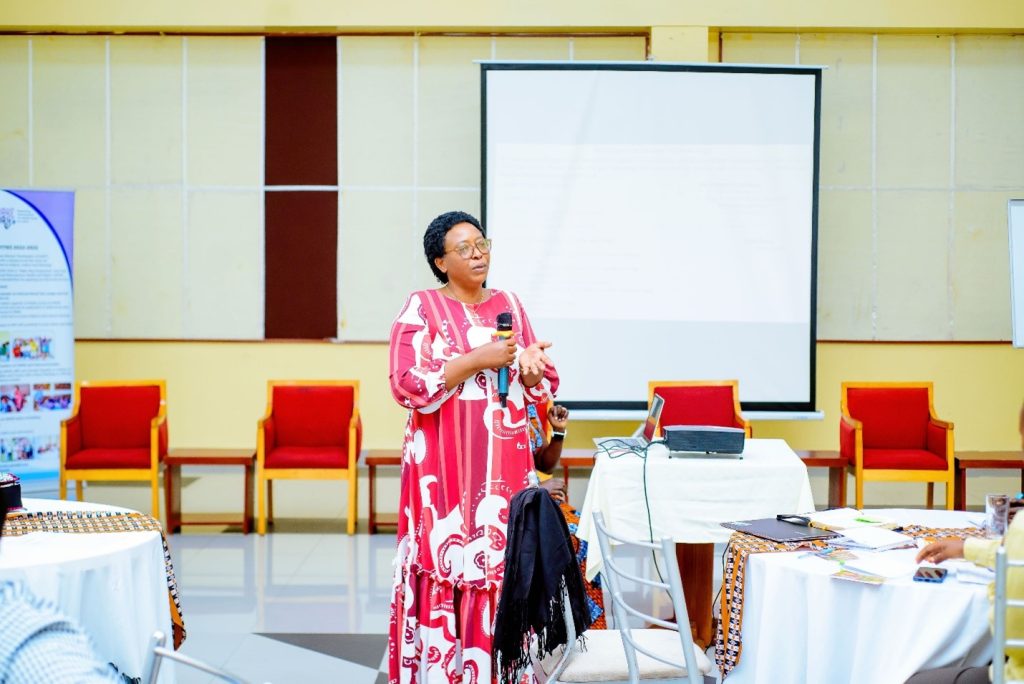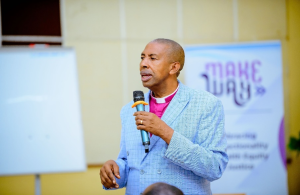Engaging Religious Leaders on Matters relating to Sexual and Reproductive Health
 25 April 2024
25 April 2024

“We have sent so many young people away from the church instead of allowing God’s children to come to Him. There is a need to learn how to talk about sexual and reproductive health in a spiritual way.” (Clergy, 58-60 years old)
Religion has been called out as a significant barrier to the realization of sexual and reproductive health and rights (SRHR) of youth with compounded vulnerabilities. SRHR are human rights that allow people to make informed decisions about relationships, their bodies, family planning, sexuality, and well-being. Given the upsurge of rape cases, teenage pregnancies, teenage motherhood, and femicide, among young people, especially with compounded vulnerabilities, the Circle of Concerned African Women theologians (hereafter, the Circle) in Rwanda embarked on examining the perceptions of religious leaders on sexual and reproductive health and the rights of young people with compounded vulnerabilities. The study sought the voices and perceptions of religious leaders regarding SRHR. Prescriptive Biblical teachings on sexuality often guide the ministers in handling sex and sexuality issues emanating from the community.
The study was successfully conducted in three districts, namely, Rusizi, Gasabo and Nyagatare, under the Make Way Program. A total of 596 people, including 279 males and 317 females, participated in this assessment as respondents. A mixed methods research design was employed to gather qualitative data using interview schedules. A majority of 43 participants from the three districts gave key informant interviews, 128 young participants in multiple focus group discussions, and 425 people participated in a mini survey. On 19th February 2024, in partnership with the Kenya Chapter, the Circle-Rwanda held a dissemination workshop of the findings that drew clergy from various churches in Rwanda, with an outstanding representation of visually and hearing-impaired religious leaders. The Make Way Program aims to break down barriers to sexual and reproductive health and rights (SRHR). Under a vast consortium, the program utilizes an intersectional lens to lobby and advocate for the realization of SRHR for all individuals, including those who are the most minoritized.
Ambivalent perceptions stand out from the study. Religious leaders recognize that they have a leadership role to guide their members on spiritual matters since all beings are created in God’s image and likeness. However, mixed perceptions among religious leaders in relation to youth accessing SRH services and information ensued. From the research findings, the religious leaders opined that talking to the youth about SRH issues was beyond their mandate, which is to preach the true word of God and pray for God’s people. Rev. Dr. Nagaju Muke, the National Coordinator of the Circle-Rwanda, explained that the religious leaders’ hesitance to engage in teaching about sexuality has a cultural root. Culturally, sex and sexuality are taboo subjects that are discussed privately. Important to note is that most African cultures had structures for training young adults on sex and sexuality. For instance, paternal aunts and uncles in most cultures were tasked to discuss sex, sexual development, and sexual decision-making with nieces and nephews after initiation ceremonies. In other communities, non-penetrative sexual exploration was encouraged among the initiates as training on self-control. With the breakdown of cultural structures that inculcated young people into SRH issues, the religious leaders, after the study’s results dissemination, saw the need to engage with the youth on matters of sexuality, as they noted that high levels of teenage pregnancy were a result of a lack of information on SRH.

Dr. Nagaju Muke, the National Coordinator of the Circle-Rwanda
Rev. Mukamakuza Therese, the Executive Secretary of the Circle-Rwanda, did not mince her words as she explained to the religious leaders present that the Bible talks about reproductive issues. Rev. Mukamakuza referencing Genesis 1:28 reminded the religious leaders that God blessed Adam and Eve and said to them, “Be fruitful and multiply and fill the earth”. This, she noted, is an act God envisioned, and they, therefore, ought to guide His people on reproductive health issues. Rev. Mukamakuza further wooed the clergy with her grounding assertion that “lack of information on SRH is a problem that concerns us (clergy) because we have young people in the churches who should get the information and know how to behave.”

Rev. Mukamakuza Therese, the Executive Secretary of The Circle – Rwanda
The Circle conducted a bible study on Genesis 34 to affirm her assertion using the intersectional See-Judge-Act tool. The intersectional See-Judge-Act tool, developed by the Circle, was employed on Dinah’s story in Genesis 34 to demonstrate the need for advocacy on issues that dehumanize God’s creation, with a keen reference to sexual issues. In the story, Dinah, the daughter of Leah and Jacob, is raped by Shechem, the prince of the land. On learning about her rape, her brothers react strongly by engaging in a mass killing of all the men of the city, but their father condemns Simeon and Levi for their actions. In understanding the rape of Dinah, one needs to see the power play (prince of the Land), the silencing of Leah (Dinah’s Mother), and the agitation from Dinah’s brothers, among other components. Who is agitating responsibly for our young people as they develop into responsible sexual beings?!

Religious Leaders utilize ISJA tool on Dinah’s story in Genesis 34
The youth present in the workshop affirmed their need for guidance on sexuality issues from the key socializing agents, parents, teachers, and religious leaders, as they got a lot of misleading information from internet resources that are often devoid of upright morals. In a change of tone, Bishop Dr. Bunini Gahungu, the leader of the Evangelical Alliance, was taken aback by the findings, because a majority indicated that it was not the role of religious leaders to teach about sex and sexuality. He asked the religious leaders to seek ways of increasing their knowledge on SRH and acquiring skills of passing the same to the young people. He reminded them that there are avenues of doing that.

Bishop Dr. Bunini Gahungu, the leader of the Evangelical Alliance
Though the minister did not outrightly point to the said avenues, the Circle amplified the need to engage with sacred texts, premarital counseling sessions and involving parents in SRHR since an intergenerational approach is paramount in socialization. The research findings outlined that religious leaders can influence public opinion on several issues, including youth access to SRH information and services. Stakeholders involved in SRHR issues need to engage with religious leaders, leverage their legitimacy in the eyes of communities as moral opinion shapers for policy influence and foster inclusive social values in promoting SRH services. Nonetheless, the religious leaders agreed that the youth need to be guided on SRH from a religious perspective and that there is a need to build religious leaders’ capacity to navigate SRH issues collaboratively. The acknowledgment that they have not guided the youth provides an opportunity to incorporate clergy in addressing sexual and reproductive health issues. The religious leaders need to be equipped with skills to collaboratively discuss popular religious and societal misconceptions about SRH from a religious standpoint with the other stakeholders.



